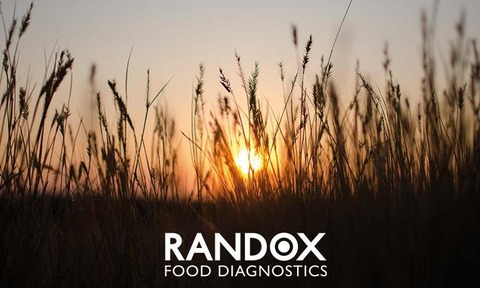
Randox Food Diagnostics is breaking into the mycotoxins market with the launch of its first screening product.
The company has an existing range of drug residue screening solutions both on ELISA and BioChip multiplexing platforms, supplying some of the world’s largest processors.
For its debut into the mycotoxins market Randox Food Diagnostics has selected ergot alkaloids - with incidences recorded as far back as the 800s AD.
Modern outbreaks in human populations are now isolated, with the last major incident recorded in Ethiopia in 2001. However, the focus has moved to animal health and the testing of grains used in feed production.
Ergot alkaloids are produced by fungi of all species of the Claviceps genus, which parasitise the seed heads of living plants at the time of flowering.
The fungus replaces the developing grain or seed with the alkaloid wintering body, known as ergot, ergot body or sclerotium. The sclerotia are harvested together with the cereals or grass and if not removed before processing, can lead to contamination of cereal-based food and feed products.
Feed contiminated with toxic levels of ergot alkaloids has been found to affect the reproductive cycles of pigs, poultry and cattle, causing animals to terminate pregnancies. They also have been shown to impact upon digestive systems, resulting in poor weight-gain for meat production.
Randox Food Diagnostics global business manager David Ferguson said: “With one of the most comprehensive drug residue testing menus on the market, our research and development process is geared strongly towards new products. Although testing for mycotoxins is a new market, the underpinning immunoassay science for drug residue screening is the same.
“We are absolutely confident we have a product equal to the quality of our meat, honey and dairy screening tests.”




